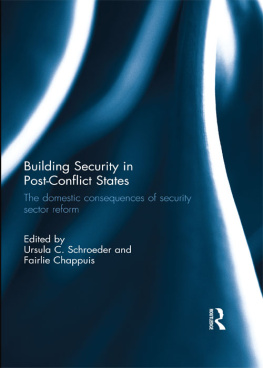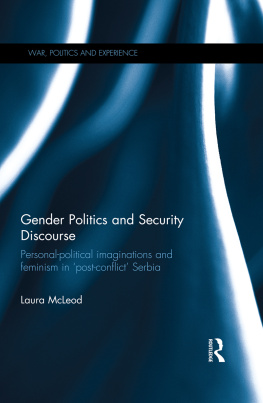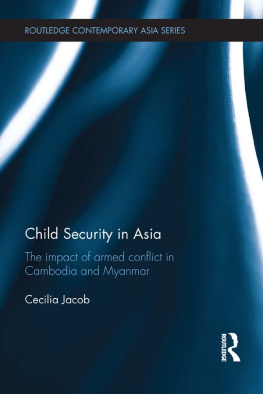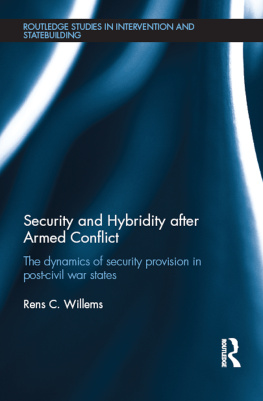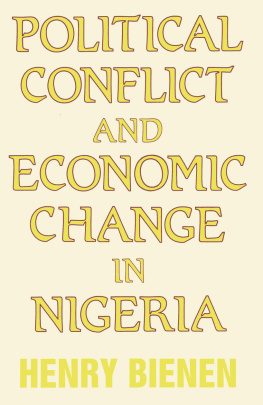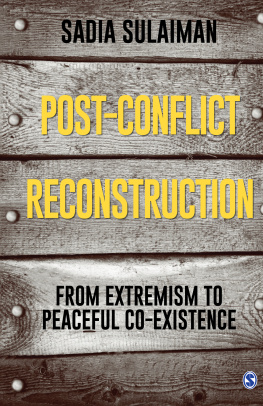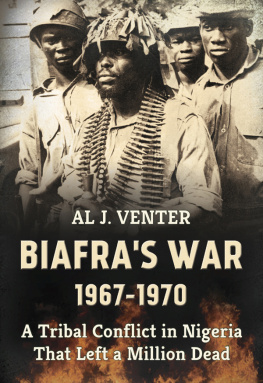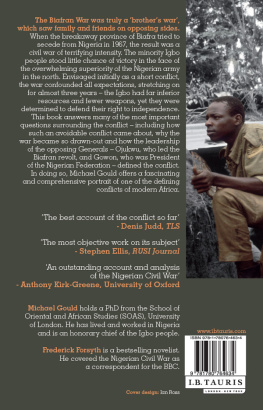First published 2006 by Ashgate Publishing
Published 2016 by Routledge
2 Park Square, Milton Park, Abingdon, Oxon OX14 4RN
711 Third Avenue, New York, NY 10017, USA
Routledge is an imprint of the Taylor & Francis Group, an informa business
Copyright 2006 Kenneth Omeje
Kenneth Omeje has asserted his right under the Copyright, Designs and Patents Act, 1988, to be identified as the author of this work.
All rights reserved. No part of this book may be reprinted or reproduced or utilised in any form or by any electronic, mechanical, or other means, now known or hereafter invented, including photocopying and recording, or in any information storage or retrieval s ystem, without permission in writing from the publishers.
Notice:
Product or corporate names may be trademarks or registered trademarks, and are used only for identification and explanation without intent to infringe.
British Library Cataloguing in Publication Data
Omeje, Kenneth C.
High stakes and stakeholders : oil conflict and security in Nigeria
1.Petroleum industry and trade - security measures
Nigeria 2.Petroleum industry and trade - Nigeria
3.International business enterprises - Nigeria
4.Environmentalism - Nigeria 5.Internal security - Nigeria
6.Nigeria - Politics and government - 1993- 7. Nigeria
Economic conditions - 1970
I.Title
338.2'728'09669
Library of Congress Cataloging-in-Publication Data
Omeje, Kenneth C.
High stakes and stakeholders : oil conflict and security in Nigeria / by Kenneth
Omeje.
p. cm.
Includes bibliographical references and index.
ISBN 0-7546-4727-7
1. Petroleum industry and trade--Nigeria. I. Title.
HD9577.N52O44 2006
338.2'728209669--dc22
2005031670
ISBN 9780754647270 (hbk)
ISBN 9781138264502 (pbk)
This book derives from a concern with the oil conflict in Nigeria. It critically explores the evolution of the conflict, its dynamics and most significantly, the interplay and consequences of high stake rentier politics on the management, reproduction and persistence of both the conflict and the correlated security threats. But why do we need an empirical study of the Nigerian oil conflict and its security ramifications? There are both theoretical and practical reasons for this intellectual undertaking.
At the more theoretical level, it is apparent that most theories and discourses of state-oil industry-society relations in Nigeria, and to a lesser extent, other volatile rentier economies of the south have not adequately appreciated the structure and dynamics of the rentier space and how they inform, proliferate and perpetuate violent conflicts. In this case of Nigeria, this apparent gap has meant that a great deal of intellectual populism and sweeping generalizations has characterized most analyses of issues of oil conflict and security. Hence, from a basic interrogative and integrative standpoint, this study attempts to re-engage and retheorize the rentier state and the problematic of domestic security focusing on Nigeria.
The perfusion of violent conflicts of varying intensities in many oil exporting economies of the south, coupled with the increasing inability of beleaguered states to provide security and the temptation on the part of operating transnational oil companies (TNOCs) to correspondingly corporatize security, suggest that the questions of who provides security or who should provide security, for whom security is provided, in what issue areas, under what conditions and using what methods, are recurrent problems that need to be rigorously engaged with in both theory and practice. Indeed, these practical developments and the theoretical questions they provoke more or less resonate with the current quest among many security experts for an expansion of the security agenda away from the state-centric paradigm of neo-realism in preference for a more integrative approach. Based on a critical anatomy of the Nigerian situation, this study explores key theoretical and empirical questions and challenges of security in Nigeria as a means of extending the frontiers of the intellectual debate.
On the practical side, the study is timely in view of the devastating consequences of the oil conflict on national and sub-regional securities given the fact that Nigeria is an oil-dependent state that plays a hegemonic role in security co-operation and peacekeeping in the West African sub-region based on its relative economic and military clout. Moreover, a number of West African countries, such as Togo, Niger, Burkina Faso and Ghana depend, to a large extent, on Nigerias oil to power their economies. Likewise, the West African Gas Pipeline Project, the largest transnational energy project in Africa, expected to be commissioned in December 2006, is entirely based on the production and supply of liquefied petroleum gas from Chevrons Niger Delta oil base to the neighbouring West African countries of the Benin Republic, Togo and Ghana. Hence, in broad security terms, the ripple effects of the oil conflict could be potentially wide ranging.
At an even wider level, the high incidents of oil-related conflicts in Africas largest oil producing country (Nigeria) and other developing countries (e.g. Sudan, Angola, Ecuador and Colombia) further necessitate serious intellectual inquiry and appraisal. Contemporary wars and related developments in the politically volatile Persian Gulf, which currently holds a substantial concentration of the global oil export market, are, in addition, oil-related conflicts, but with radically different rhythms, stakes and dynamics.
In Africa (and, to a lesser extent, elsewhere in the global south), conflicts in major oil producing states have been compounded by blatant corruption and neo-patrimonial misgovernance. As the March 2005 report of the US National Intelligence Council (NIC) for Africa coalesces the discourse, to date, African oil producers have had very poor development records and much of the oil revenue that the oil producers receive has been wasted. In most petroleum producing countries, the path to wealth for elites is found in greater access to state-controlled oil revenue rather than through private sector investment (NIC, 2005:7). The NIC report concludes on the rather cynical scenario, that Nigeria could deteriorate to an outright collapsed or failed state in the next 15 years, a scenario that could drag down and destabilize a large part of the West African region (NIC, 2005:16). While many may not share the cynical scenario projected in the NIC report concerning Nigerias future, it clearly points to the gravity of the deteriorating cycle of oil-related conflicts and instability in the country.
This book is divided into eight chapters, with most chapters comprising a number of thematic sub-sections. It will suffice to briefly outline the structure and major concerns of the chapters of the study.
defines the primary objectives of the study and further locates the research problematic within a broad conceptual background and framework of analysis. The conceptual framework developed and expounded in this chapter is more or less applied in the analysis of the subsequent chapters but this is, however, complemented by other relevant explanatory concepts, theories and paradigms.
attempts to conceptualize the Nigerian oil conflict and domestic security environment within the broad framework of the contemporary security discourses. In addition, the chapter critically reviews some key studies focused on the Nigerian oil conflict. In the course of the literature review, some of the merits and weaknesses of the various studies and perspectives are highlighted. This chapter also tries to demonstrate the gaps in most previous studies as a means to justify the




